Have you ever received a text message or a WhatsApp chat from an unknown number, asking for personal details, promising a prize, or claiming to be someone you know in trouble? If so, you’re not alone. In our increasingly connected world, these digital traps are becoming more sophisticated, targeting millions of us every day. As we navigate 2025, the landscape of online communication, while convenient, also presents fertile ground for cunning fraudsters.
I’m here to shed light on the dark corners of WhatsApp and SMS scams. I’ll explain how these deceptive schemes work, reveal the psychological tricks scammers play, and most importantly, equip you with the knowledge and strategies you need to stay safe and protected. My goal is to empower you to recognize these threats, avoid falling victim, and safeguard your personal information and finances. Let’s dive in and build a stronger defense against digital deception together.
Table of Contents
Overview
- Scammers use sophisticated tactics: They impersonate trusted contacts, banks, or government agencies, often creating a sense of urgency or fear to trick you.
- Verify before you act: Always double-check requests for money or personal information, especially if they come unexpectedly via WhatsApp or SMS. Call the person or organization using a known, official number.
- Protect your personal data: Never share One-Time Passwords (OTPs), bank details, or other sensitive information in response to unsolicited messages.
- Strong security is your best friend: Enable Two-Factor Authentication (2FA) on all your accounts and regularly update your apps and devices to close security gaps.
- Report and block: If you suspect a scam, block the sender immediately and report the incident to WhatsApp, your mobile provider, and local authorities.
The Rise of Digital Deception: Why Scams Thrive on WhatsApp & SMS in 2025
In 2025, our smartphones are more than just communication devices; they’re our connection to work, family, friends, and countless services. Apps like WhatsApp and traditional SMS messages are at the core of this digital interaction. Unfortunately, where there’s convenience and widespread use, there’s also opportunity for those with ill intentions.
Scammers love WhatsApp and SMS for several reasons:
- Ubiquity: Almost everyone has a mobile phone and uses messaging apps. This means a huge potential target pool for scammers.
- Perceived Trust: Messages can often feel personal and direct, making us more likely to believe they’re legitimate, especially if they appear to come from a known contact.
- Low Barrier to Entry: Sending thousands of messages is cheap and easy for scammers, allowing them to cast a wide net.
- Instant Gratification (for Scammers): A successful scam can yield immediate financial results, making these methods highly attractive to criminals.
- Evolving Tactics: Scammers are constantly refining their methods, using new technologies and social engineering tricks to bypass our defenses.
The sheer volume of these messages can be overwhelming, making it harder to distinguish legitimate communications from fraudulent ones. This is why understanding their methods is the first step to protecting ourselves.
Understanding the Scammers’ Playbook: Common WhatsApp & SMS Scam Tactics
Scammers are creative, and their methods are constantly evolving. However, many of their tricks fall into recognizable patterns. Let me walk you through some of the most common types of WhatsApp and SMS scams I see in 2025.
Phishing Links: The Digital Bait
This is one of the oldest but still most effective tricks. You receive a message with a link, often disguised to look like it’s from a reputable source like your bank, a shipping company, or a social media platform. The message might say:
- “Your package is delayed. Click here to reschedule delivery.”
- “Your bank account has been compromised. Verify your details immediately.”
- “You have a new voicemail. Listen now.”
When you click the link, you’re usually taken to a fake website designed to look exactly like the real one. Any information you enter – usernames, passwords, bank details – goes straight to the scammers.
Always be suspicious of unexpected links. If it seems urgent or too good to be true, it probably is.
Impersonation Scams: Wearing a Digital Mask
These scams rely on pretending to be someone else to gain your trust or exploit your concern.
“Hi Mum/Dad” or Family Emergency Scams
This scam has seen a huge surge in 2025. You get a message, often from an unknown number, claiming to be your child, grandchild, or other family member. They’ll say their phone is broken, lost, or they’re using a temporary number. They’ll then claim to be in an urgent situation – needing money for an emergency bill, a new phone, or to get out of trouble – and ask you to transfer funds quickly.
- Example: “Hi Mum, my phone broke. This is my new number. Can you send me money for an urgent bill? I can’t access my banking app.”
Bank, Government, or Tech Support Impersonation
Scammers often pretend to be official organizations.
- Bank Scams: You might get a message stating there’s suspicious activity on your account, an unauthorized transaction, or that your account needs verification. They’ll ask you to click a link or call a fake number.
- Example: “Urgent: Unusual activity detected on your account ending XXXX. Reply Y to verify or click [malicious link] to secure your account.”
- Government/Tax Scams: These messages might threaten legal action, promise a tax refund, or demand payment for a fake fine.
- Example: “Your tax refund of $500 is ready. Click [malicious link] to claim it.”
- I’ve noticed a rise in such scams, similar to cyber scams in India that target individuals with official-sounding threats.
- Tech Support Scams: They claim your device has a virus or a security issue and offer to “help” you fix it, often by asking for remote access to your computer or demanding payment for fake services.
- Example: “Your device security has been compromised. Call our support line immediately at 1-800-XXX-XXXX for assistance.”
Investment & Cryptocurrency Scams: The Promise of Easy Riches
With the rise of digital assets, scammers have found new avenues. They might contact you out of the blue, often on WhatsApp, with an irresistible offer for a high-return investment in cryptocurrency, forex, or other schemes. They’ll show you fake profits and encourage you to invest more, only to disappear with your money.
- Example: “I’ve made huge profits with this new crypto platform! Invest now and get 200% returns in a week. Message me for details.”
Job Offer Scams: The Dream Job That Isn’t
These scams often target job seekers. You might receive an unsolicited message offering a high-paying job with minimal effort, often involving tasks like “optimizing” online listings or performing simple data entry. They might ask for personal details, upfront fees for training or equipment, or even use your bank account for money laundering.
- Example: “Congratulations! You’ve been selected for a remote part-time job earning $500 daily. WhatsApp us at +1234567890 to start.”
Lottery/Prize Scams: You’ve Won! (But Need to Pay)
This classic scam preys on our desire for good fortune. You receive a message claiming you’ve won a huge lottery, a new car, or a significant cash prize from a contest you never entered. To “claim” your prize, they’ll ask for an upfront fee for taxes, processing, or administration. Of course, there’s no prize, and your money is lost.
- Example: “Congratulations! Your mobile number has won $1,000,000 in the MegaDraw Lottery. Contact our claims agent with your bank details to process.”
Romance Scams: Playing with Your Heart (and Wallet)
Scammers build emotional connections with their victims, often over weeks or months, before asking for money. They might claim to be in love with you, facing a crisis, or needing funds for travel, medical emergencies, or business ventures. They typically create elaborate fake identities and stories.
- Example: “My dearest, I’m stuck overseas and need money for my flight ticket to come see you. Can you help me out?”
OTP/Verification Code Scams: The Key to Your Accounts
This is a particularly dangerous scam. A scammer might call or message you, pretending to be from your bank, a service provider, or even a friend. They’ll ask you to “verify” something by reading out a One-Time Password (OTP) or a verification code they just sent to your phone. What they’ve actually done is initiated a password reset or a transaction on one of your accounts, and they need that code to complete it.
- Example: “I accidentally sent you an OTP. Can you please forward it back to me?” (This is a huge red flag! Never share OTPs.)
SIM Swap Scams: Taking Over Your Identity
While not always initiated via WhatsApp or SMS, SIM swap scams can be devastating. Scammers trick your mobile carrier into transferring your phone number to a SIM card they control. Once they have your number, they can intercept calls and texts, including OTPs, allowing them to gain access to your bank accounts, email, and social media.
How Scammers Get Your Number and Information
It’s natural to wonder how these scammers get your contact details. Here are some common methods:
- Data Breaches: Unfortunately, many companies experience data breaches, exposing customer phone numbers, email addresses, and other personal information.
- Publicly Available Information: Your number might be on social media profiles, public directories, or old forum posts.
- Buying Lists: Criminals often buy lists of contact information on the dark web.
- Automated Dialers/Generators: Scammers use software to automatically dial or message millions of numbers, hoping some are active.
- Social Engineering: They might trick people into revealing your information through other means.
The Psychological Tricks Scammers Use
Scammers are master manipulators. They don’t just send random messages; they employ psychological tactics to make you act without thinking.
- Urgency: “Act now or lose out!” or “Your account will be suspended if you don’t respond immediately.” This pressure forces quick decisions.
- Fear: Threats of legal action, account closure, or personal harm can make you panic and comply.
- Greed: “You’ve won a million dollars!” or “Guaranteed high returns!” – playing on the desire for easy money.
- Empathy/Trust: Impersonating a loved one in distress or building a romantic relationship exploits your caring nature.
- Authority: Pretending to be from a bank, government agency, or tech support uses the power of an official role to command compliance.
- Curiosity: “Check out this embarrassing photo of you!” or “Is this really you in this video?” can make you click malicious links.
My Proactive Protection Strategies: How to Stay Safe in 2025
Staying safe in 2025 requires vigilance and smart practices. Here’s what I recommend to protect yourself from WhatsApp and SMS scams:
1. Think Before You Click or Reply
Always pause and think critically before interacting with an unexpected message.
- Verify Links: Hover over links (if on desktop) or long-press them (on mobile) to see the actual URL before clicking. Does it match the sender? Is it a strange, shortened link?
- Check for Red Flags: Poor grammar, spelling errors, unusual phrasing, or a sender number that doesn’t look quite right are all warning signs.
- Be Skeptical of Urgency: Legitimate organizations rarely demand immediate action without prior warning, especially for financial matters.
2. Verify Identity: Trust, But Verify
If a message claims to be from a friend, family member, bank, or organization asking for money or sensitive information:
- Call Them Directly: Use a known, official phone number (not the one from the suspicious message) to call the person or organization to confirm the request. For family, ask a question only they would know.
- Don’t Reply to the Message: Replying confirms your number is active and you might be susceptible.
- Check Official Channels: If it’s a bank or service, log into your account through their official website or app (not via a link in the message) to check for alerts.
3. Never Share Personal Information (Especially OTPs)
This is paramount. No legitimate organization or person will ever ask you for your:
- One-Time Passwords (OTPs) or Verification Codes: These are the keys to your accounts. Anyone asking for them is a scammer.
- Bank Account Numbers, Credit Card Details, PINs: Unless you initiated a secure transaction on a trusted website, never provide these.
- Passwords: Ever.
- Date of Birth, Social Security Number/National ID: Be extremely cautious about sharing these.
📢 “Your OTP is like the key to your digital home. Never hand it over to anyone, no matter who they claim to be.”
4. Use Strong Security Features: Your Digital Fortress
- Two-Factor Authentication (2FA): Enable 2FA on all your important accounts (email, banking, social media, WhatsApp). This adds an extra layer of security, making it much harder for scammers to access your accounts even if they have your password.
- Strong, Unique Passwords: Use a password manager to create and store complex, unique passwords for each of your accounts.
- Keep Software Updated: Regularly update your phone’s operating system and all your apps. Updates often include critical security patches.
- Review App Permissions: Periodically check what permissions your apps have (e.g., access to contacts, camera, microphone) and revoke any that seem unnecessary.
5. Beware of “Too Good to Be True”
If an offer seems incredibly generous – a huge prize for doing nothing, an investment with guaranteed sky-high returns, or a job that pays a fortune for minimal effort – it’s almost certainly a scam. Apply common sense and skepticism.
6. Report & Block: Fight Back!
If you receive a suspicious message:
- Block the Number: This prevents them from contacting you again.
- Report to WhatsApp/SMS Provider: WhatsApp has a built-in report feature. For SMS, your mobile provider usually has a number (like 7726 in many regions) to forward scam texts.
- Report to Authorities: In your country, there will be a specific agency for reporting cybercrime or fraud. This helps them track scammers and protect others.
7. Regular Security Checks and Cyber Hygiene
- Monitor Your Accounts: Regularly check your bank statements and credit card activity for any unauthorized transactions.
- Be Mindful of What You Share: Limit the amount of personal information you post publicly on social media.
- Educate Yourself: Stay informed about the latest scam trends. Resources like cyber hygiene in 2025 can provide valuable insights into maintaining a strong digital defense.
- Consider Cybersecurity Tools: While many best free cybersecurity tools are geared towards IT professionals, understanding the principles behind them can help you choose better personal security software.
8. Educate Others
Share your knowledge with friends and family, especially those who might be less tech-savvy. Scammers often target vulnerable individuals, so spreading awareness is a powerful defense.
What to Do If You’ve Been Scammed
Even with the best precautions, sometimes people fall victim. If you suspect you’ve been scammed, act quickly:
- Stop All Communication: Immediately cease all contact with the scammer.
- Contact Your Bank/Financial Institution: If you’ve sent money or shared bank details, call your bank’s fraud department immediately. They may be able to stop transactions or secure your accounts.
- Change Passwords: Change passwords for any accounts that might have been compromised, especially email and banking.
- Report to Authorities: File a report with your local police or relevant cybercrime agency. Provide all details, including messages, phone numbers, and transaction records.
- Secure Your Devices: Run a full scan with reputable antivirus software on any device you believe might have been compromised (e.g., by clicking a malicious link).
- Inform Family & Friends: Let your close contacts know you’ve been scammed, especially if the scam involved impersonating you, so they can be vigilant.
- Seek Support: Being scammed can be emotionally taxing. Talk to trusted friends, family, or support organizations.
The Future of Scams: What to Expect in 2025 and Beyond
As technology advances, so do the methods of scammers. In 2025, we’re seeing:
- AI-Powered Scams: Artificial Intelligence is making scams more sophisticated. Deepfakes can create convincing audio or video of people, making impersonation even harder to detect. AI can also generate highly personalized and grammatically perfect phishing messages, making them more believable. Understanding the role of Artificial Intelligence in modern cybersecurity is crucial, as it’s a double-edged sword used by both attackers and defenders.
- More Personalized Attacks: Scammers use publicly available information to tailor their messages, making them seem more legitimate and targeted.
- Voice Phishing (Vishing) & Deepfake Audio: Expect more calls using AI-generated voices mimicking loved ones in distress.
- Social Engineering 2.0: The psychological manipulation will become even more refined, exploiting our trust in digital platforms. This also highlights the growing importance of Shadow AI detection to identify and mitigate threats from unauthorized or malicious AI systems.
Frequently Asked Questions: WhatsApp & SMS Scams
Q: What are the most common types of WhatsApp and SMS scams?
The most prevalent scams include fake prize notifications, phishing messages pretending to be from banks or government agencies, romance scams, fake job offers, cryptocurrency investment schemes, and messages claiming your account will be suspended unless you verify your information immediately.
Q: How can I tell if a WhatsApp or SMS message is a scam?
Red flags include urgent language demanding immediate action, requests for personal information like passwords or Social Security numbers, poor grammar and spelling, offers that seem too good to be true, messages from unknown international numbers, and links to suspicious websites that don’t match the claimed sender.
Q: What should I do if I receive a suspicious message?
Don’t click any links, don’t reply to the message, don’t provide any personal information, and block the sender. You can also report the message to your mobile carrier by forwarding it to 7726 (SPAM) and report it to the appropriate authorities like the FTC or your local consumer protection agency.
Q: Can scammers steal my information just by me receiving their message?
Generally, just receiving a scam message won’t compromise your information. However, clicking on malicious links can download malware to your device or take you to fake websites designed to steal your credentials. The danger comes from interacting with the content, not just receiving it.
Q: How do scammers get my phone number?
Scammers obtain phone numbers through data breaches, purchasing lists from data brokers, social media scraping, public records, previous scam victims who shared contact lists, and sometimes through random number generation targeting specific area codes.
Q: What’s the difference between smishing and regular SMS scams?
“Smishing” is SMS phishing – it specifically refers to scams that try to trick you into revealing personal information or clicking malicious links via text message. All smishing attacks are SMS scams, but not all SMS scams are necessarily smishing (some might be advance-fee frauds or other types of cons).
Q: Can I get my money back if I fall victim to a scam?
Recovery depends on how you sent the money. Credit card transactions may be reversible through chargeback processes, while wire transfers, gift cards, and cryptocurrency are typically much harder to recover. Contact your bank or payment provider immediately if you’ve been scammed.
Q: Are there any legitimate reasons why a company would ask for personal information via text?
Legitimate companies rarely ask for sensitive information like full Social Security numbers, passwords, or PINs via text message. They might send verification codes or appointment reminders, but they’ll typically direct you to call them directly or log into your official account through their website rather than asking for sensitive data via text.
Q: How can I protect elderly family members from these scams?
Educate them about common scam tactics, set up their phones to filter unknown numbers, regularly check their messages if they’re comfortable with that, encourage them to ask family members before responding to suspicious messages, and consider reporting any scam attempts targeting them to help protect others.
Q: What should I do if I accidentally clicked on a scam link?
Immediately disconnect from Wi-Fi or turn off mobile data, don’t enter any information on the website that opened, run a security scan on your device, change passwords for important accounts, monitor your financial accounts closely, and consider contacting your bank if you entered any financial information.
Final Thought
The key takeaway for the future is continuous learning and adaptation. Staying informed about new scam techniques will be as important as ever.
WhatsApp and SMS scams are a persistent threat in our digital lives, and they’re only becoming more sophisticated in 2025. However, by understanding how these scams work, recognizing the psychological tricks scammers employ, and adopting robust protection strategies, you can significantly reduce your risk of becoming a victim.
I urge you to be vigilant, question unexpected messages, and always verify before taking action. Your digital safety is largely in your hands. By applying the knowledge I’ve shared today, you can navigate the digital world with greater confidence and keep those cunning scammers at bay. Stay smart, stay safe!



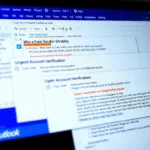

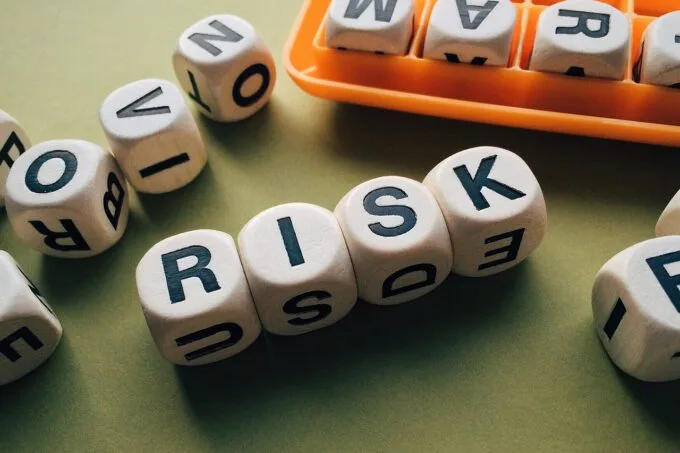



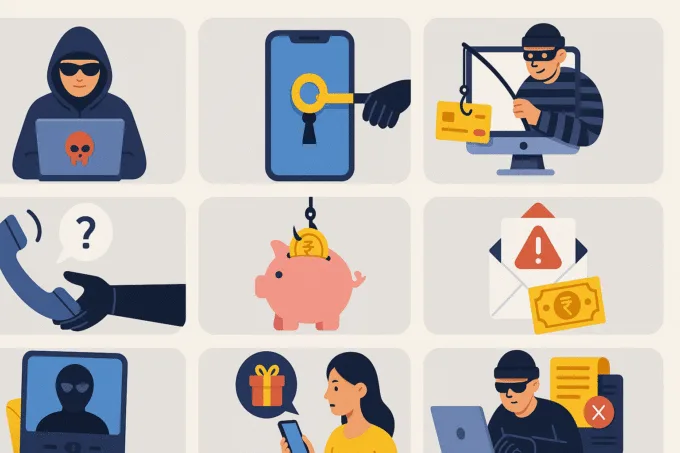

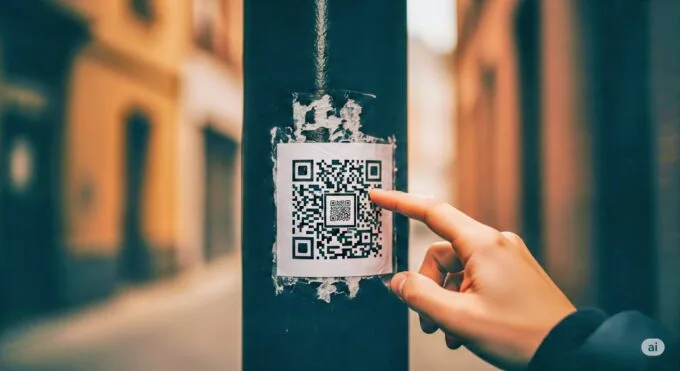
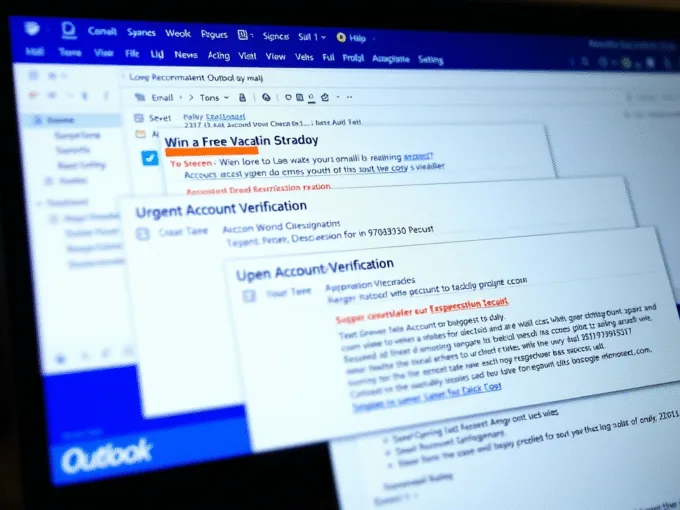


Hi this post is really helpful